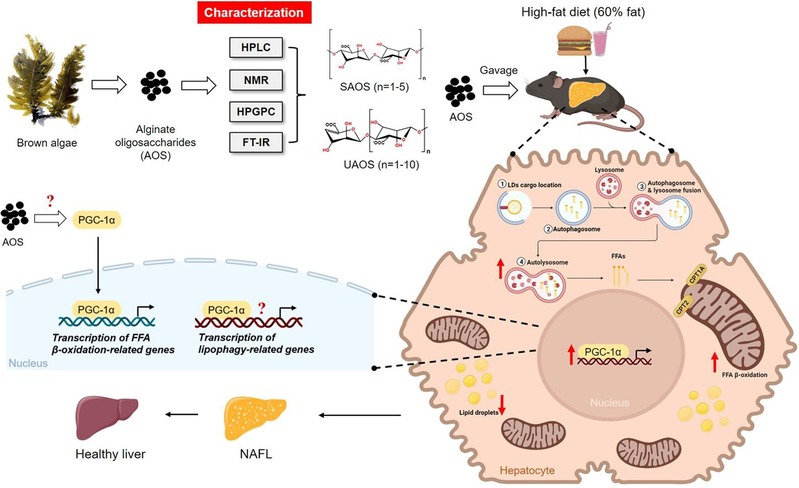文章信息 | Alginate oligosaccharides improve high-fat induced hepatic steatosis via PGC-1α-mediated lipophagy and fatty acid β-oxidation pathway, Journal of Functional Foods, 2023, 110, 105825. | 作者 | Zhuoyu Li1, Mengyao Zhao1, Xiaoguo Ji, Liqiang Fan*, Liming Zhao* | 摘要 | This study explored the lipid-lowering effect and intervention mechanism of alginate oligosaccharides (AOS) on non-alcoholic fatty liver disease (NAFLD). Results showed that both unsaturated (UAOS) and saturated (SAOS) AOS improved the hepatic steatosis of NAFLD mice fed a high-fat diet (HFD). AOS promoted lipid catabolism in vivo and in vitro by activating the lipophagy and free fatty acid (FFA) β-oxidation pathways. Peroxisome proliferator-activated receptor γ coactivator 1α (PGC-1α) represented the up-stream target of the FFA β-oxidation pathway and upregulated both in in vivo and in vitro, suggesting it might be the AOS intervention target. By activating or inhibiting PGC-1α, AOS modulated the PGC-1α activity to reduce hepatic lipid accumulation. Therefore, the results indicated that AOS exhibited a lipid-lowering effect via the PGC-1α-mediated lipophagy-FFA β-oxidation transduction signal axis. These findings provided insight into using food-derived ingredients to intervene and treat chronic diseases involving lipid metabolism disorders. | 摘要图 | 
| 文章主页 | https://www.sciencedirect.com/science/article/pii/S1756464623004255?via%3Dihub |
|